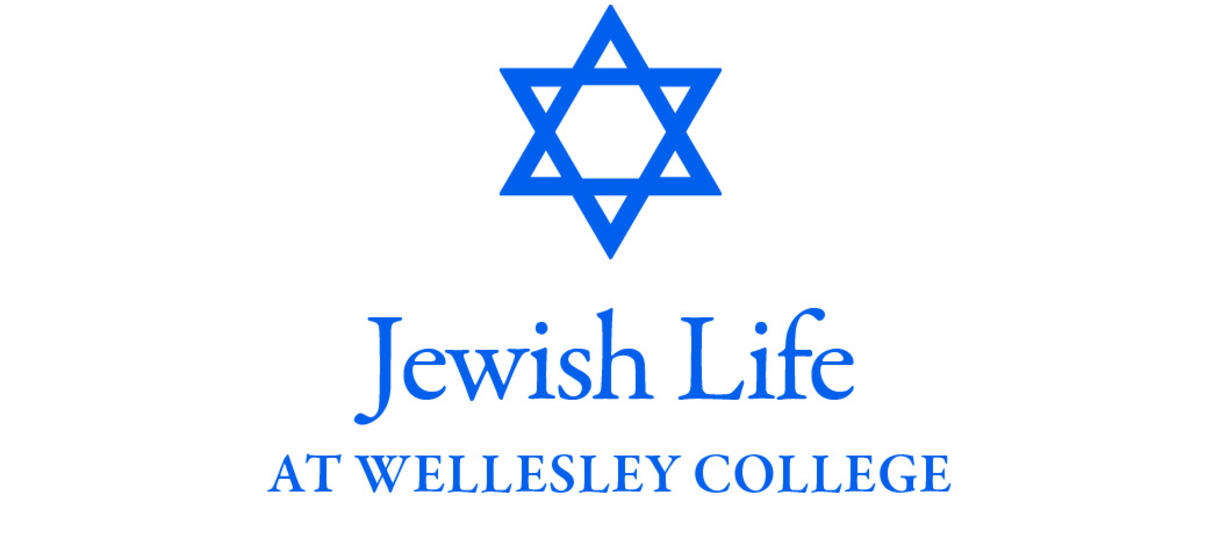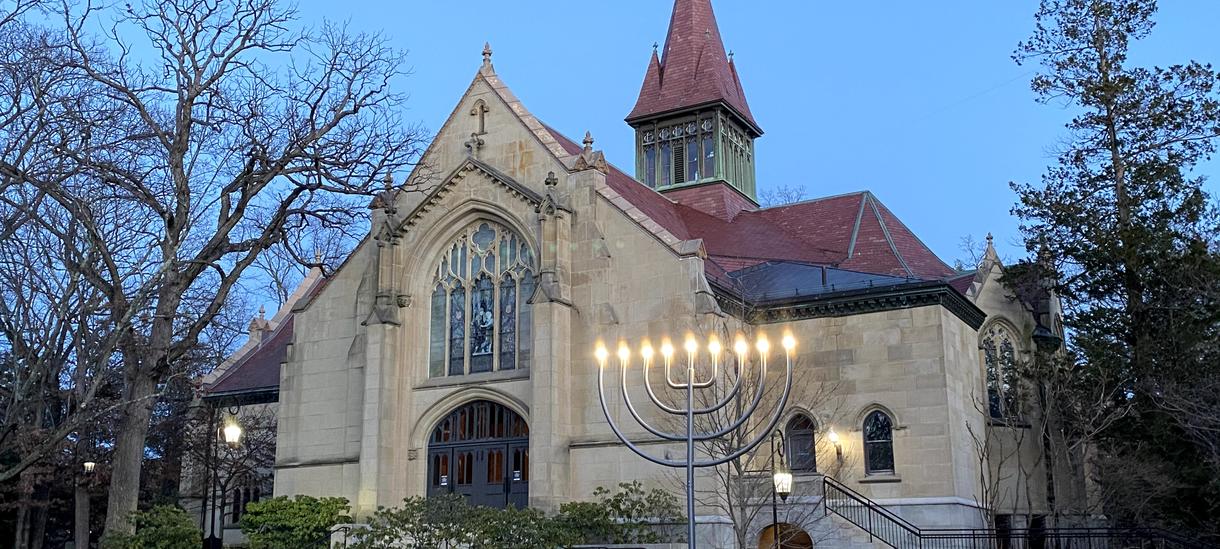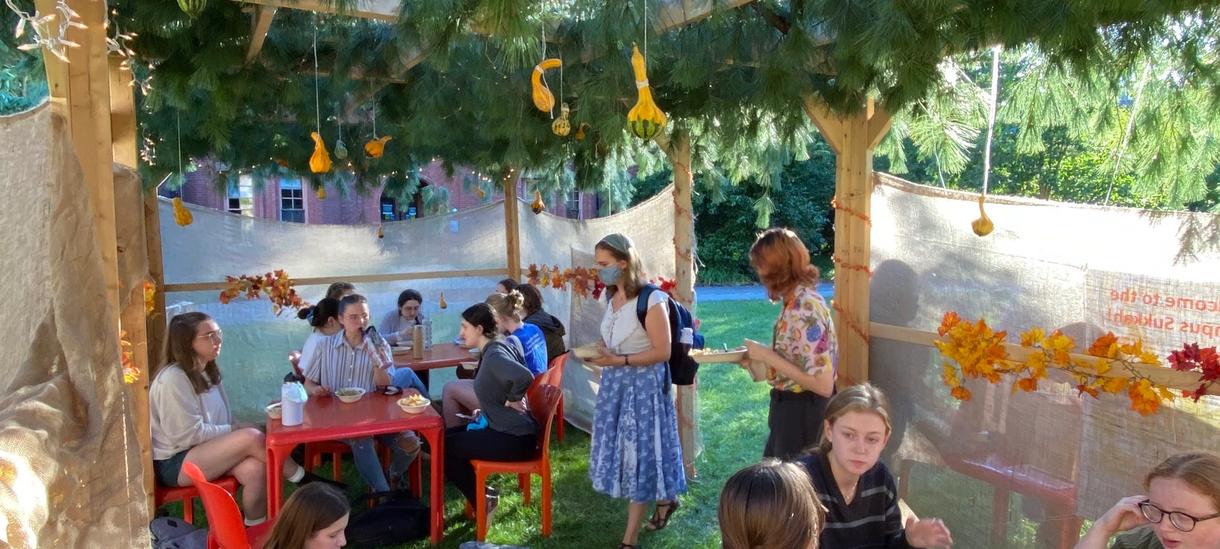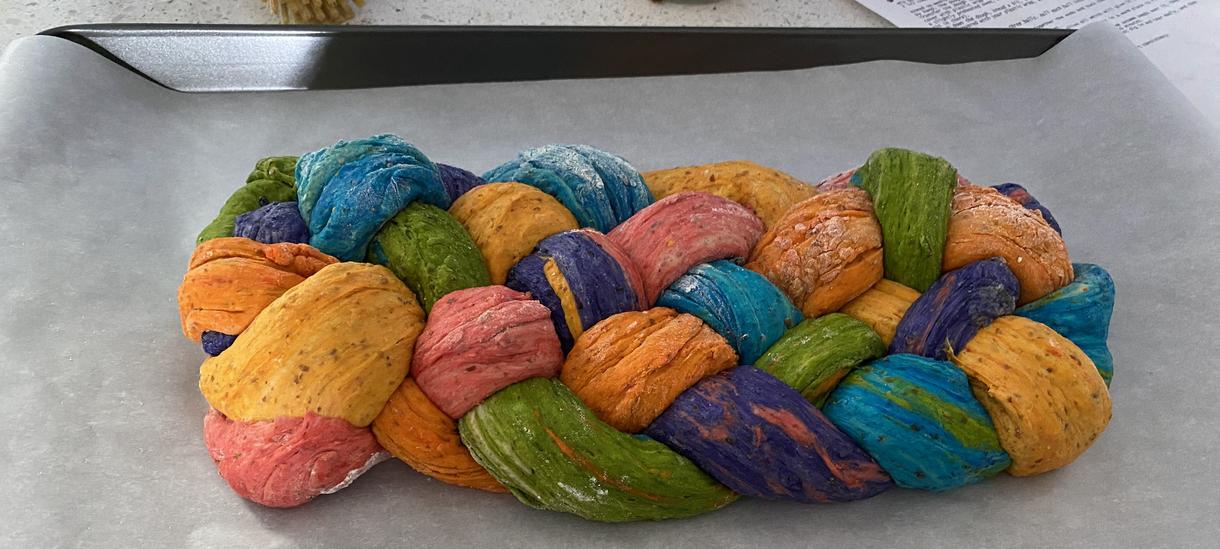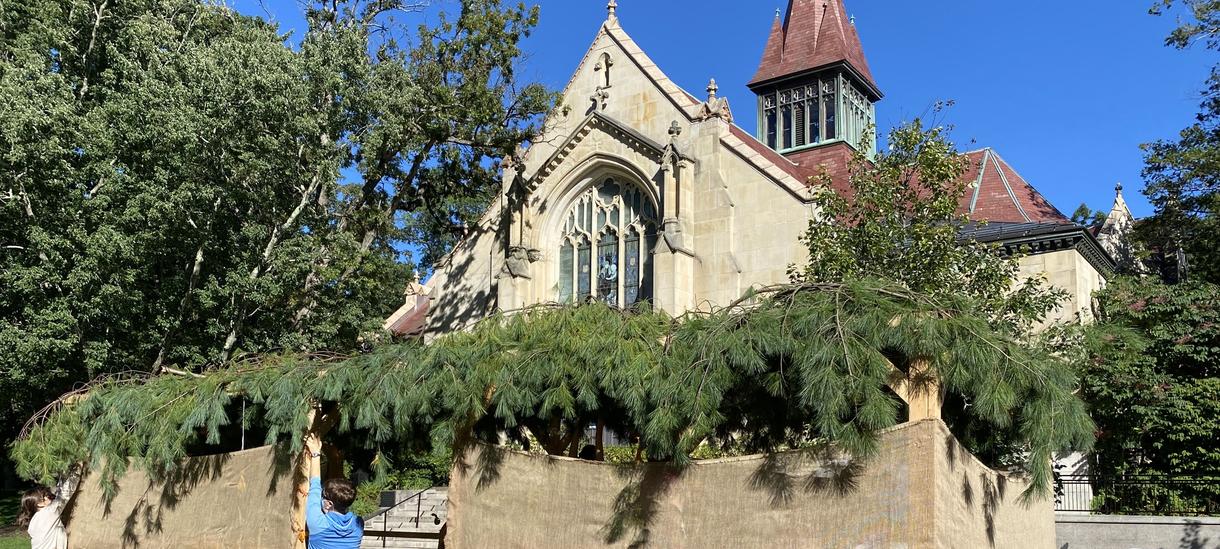Wellesley College fosters a dynamic, pluralistic Jewish community on campus. Wellesley students have many distinct ways to explore Jewish heritage, religion, and culture. Faculty, staff, and alumnae often join with students for programs and holidays, creating a thriving multi-generational Jewish community.
Jewish Life at Wellesley provides religious, social, educational, cultural and social-action activities for Jewish and non-Jewish populations alike. Together, we create and nurture a caring community in which anyone interested in Judaism, in its many forms, can come to connect. Regardless of background or previous Jewish experience or knowledge, all are welcome to bring their voice, passions, and questions and to participate fully.
Jewish students, faculty, and staff are invited to weekly Shabbat services, Shabbat dinner, High Holiday services, and learning opportunities. The Jewish Life Lounge is located in 200 Billings Hall and includes a kosher kitchen, which is open to current students.
For information on programming, please contact Rabbi Dena Bodian.
Chaplains are also available for counseling - Why Talk to a Chaplain?
Download the Wellesley Jewish Life google calendar (available only to current students).
For many students, Wellesley represents a first foray into the world of Jewish ritual. Our community is very diverse, and includes Jews from a variety of different backgrounds - from Reform, Conservative, and Reconstructionist congregations, as well as students who grew up "Jew-ish" and are exploring that element of their identity for the first time. Quite a few of our students are not from Ashkenazi backgrounds and may identify as people of color. Many are LGBTQ+.
In Jewish Life, we create a welcoming community where everyone can explore, question, and deepen their Jewish identity.
Jewish Life at Wellesley is guided by a number of important Jewish principles:
HACHNASSAT ORCHIM (welcoming guests)
We recognize that college is a time in which many people may be exploring Judaism for the first time. Everyone (whether of Jewish heritage or not) should feel free to attend and participate to the extent that they feel comfortable. We welcome all students with open arms - and no judgment.
RACHAMIM (compassion)
Rachmunis in Yiddish, the principle of compassion is especially critical. We must be patient and understanding with ourselves, each other, and the world, and give ourselves permission to experiment and, possibly, to fail. At the same time, we must dan l’chaf zechut - assume good intentions - and try to show compassionate understanding especially when it may be challenging.
KEHILLAH K’DOSHA (holy community)
It can be difficult on a day-to-day basis to remember that we are much more than a campus group - we are striving for something more spiritual and sacred. Our role is therefore to sustain and build each other up, trying to find the spark of the Divine that is present within all of us. We therefore try to follow Jewish rules about not engaging in lashon hara, or gossip, which has the power to tear a community apart.
Shabbat - Each week, we celebrate Shabbat with a lively service on Friday evening, followed by a delicious (kosher, meat) Shabbat dinner in a warm and welcoming community.
Rosh Hashanah - erev Rosh Hashanah and morning services are held. Second day programming may include services or tashlich, a labyrinth walk, or group discussion.
Yom Kippur - Kol Nidrei (evening), morning, and afternoon/neilah (concluding) services are held, as is a break-fast.
Sukkot - the campus sukkah is erected and decorated each year on the Chapel Lawn. In addition to having a daily opportunity to eat, study, and shake a lulav and etrog, lunch and dinner programs are held in the sukkah throughout the week.
Simchat Torah - programming may include a guided tour through the full Torah scroll, Israeli dancing, and treats.
Chanukah - Each night, students gather to sing the blessings and light the huge outdoor campus chanukiyah; dreidel games, latkes, sufganiyot, and cocoa enhance our celebration.
Purim - hamentashen, tzedakah projects, and treats for friends are the hallmarks of this celebration, which (depending on campus schedule) may also include a megillah reading, schpiel, or festive (kosher) Persian meal.
Passover - We hold a seder for both first and second evening. Dining halls may have a small amount of Passover food available, and students may join the kosher-for-Passover co-op in the Jewish Life Lounge.
Stone-Davis dining hall serves strictly vegetarian food at all meals under the supervision of the Campus Rabbi. Meat is regularly available only at Shabbat dinner. More observant students should note that glatt kosher, pas yoshon, and cholov yisroel products are not readily available in our area.
For many students, Wellesley represents their first experience of kashrut, and the kosher kitchen in the Jewish Life Lounge reflects that reality; because it is open to all students, we are unable to guarantee that this kitchen is strictly kosher at all times. Kosher "oopses" happen to everyone, and the Jewish Life Lounge (Billings 200) is a welcoming place to both explore and make mistakes.
Hillel is a student organization dedicated to learning, exploring, and celebrating Jewish life! In addition to gathering for Shabbat services and dinner each week, we engage in social justice work, celebrate holidays, host bagel brunches, film screenings, mixers, and more!
Learn more through the Hillel Instagram.
Shabbat Services: Friday at 5:30 pm in the MFC Gathering Space. Followed by Shabbat Dinner in the Hillel Lounge.
Advisor: Rabbi Dena Bodian

